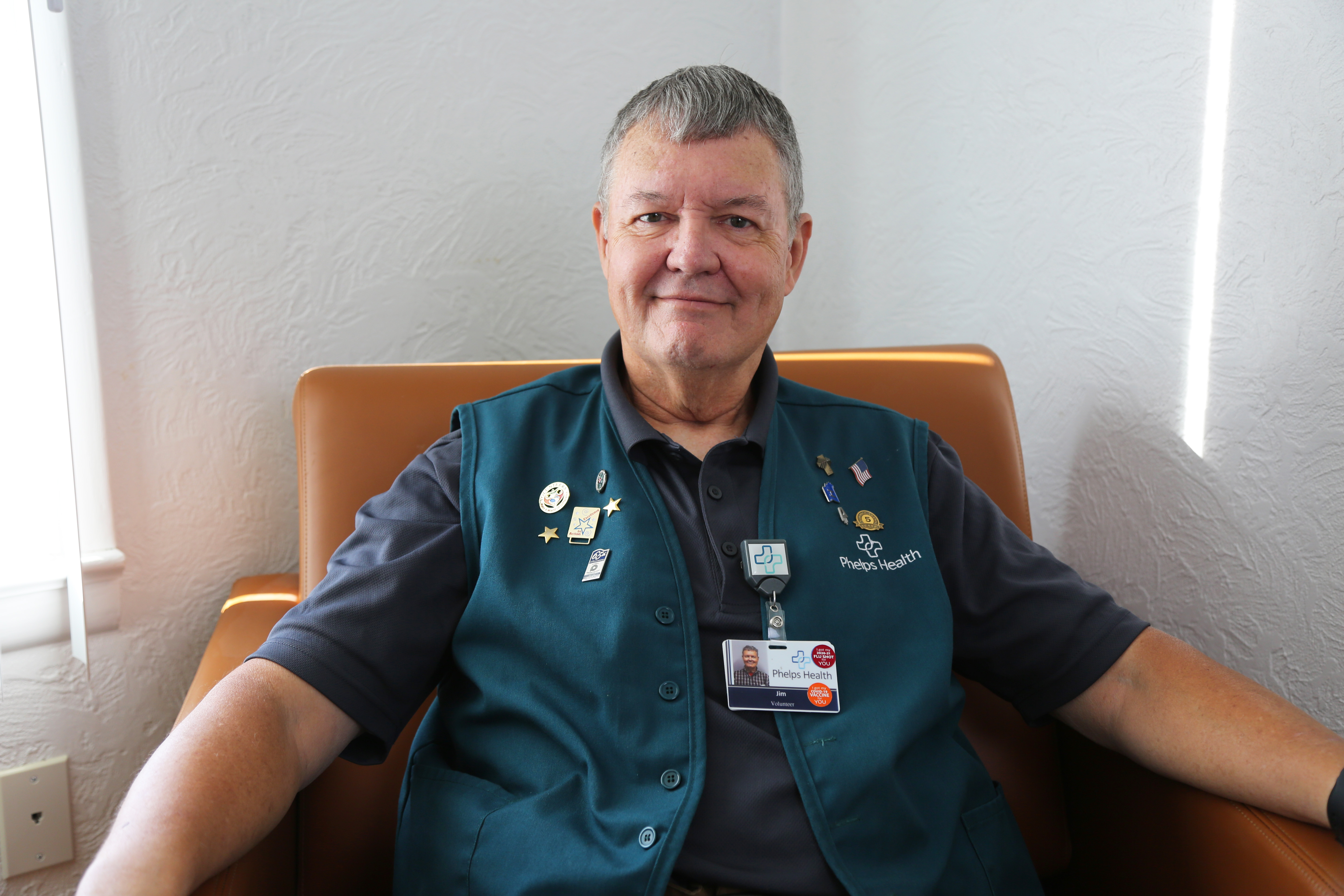
Published on November 18, 2021
Read Time: Two Minutes
James “Jim” Pettit found out in 2015 that he had type 2 diabetes after a routine blood test that measured how much glucose, or sugar, was in his blood.
“Mine was quite high,” he said.
About 90% to 95% of individuals diagnosed with diabetes have type 2 diabetes, which occurs when a person’s body cannot properly use the hormone called insulin.
In fact, every year, an estimated 38,000 people in Missouri are diagnosed with diabetes.
After his first blood test, Pettit, a volunteer with the Phelps Health Auxiliary and Volunteer Services, had another blood test – an A1C test that measures a person’s average blood sugar levels over the past three months.
Pettit began taking Metformin, an oral diabetes medication that helps control blood sugar levels.
“That's kept my A1C in check, but not my daily glucose readings,” he said.
However, medication alone cannot treat diabetes. Nutrition, exercise and other lifestyles changes all play a role in managing diabetes, as Pettit learned after completing Diabetes Self-Management Education and Support (DSMES) program offered at Phelps Health.
He found out about the diabetes education services while volunteering at Phelps Health.
“It's an incredible education program that I actually really enjoyed,” he said. “Two nurses that [lead the classes] were phenomenal as instructors. They take you through everything – what is diabetes? How can you deal with it?”
During the program, Pettit met with Phelps Health nutritionists, who taught him about the importance of reading nutrition labels, balancing carbohydrates with proteins, and drinking more water.
“[I’ve learned] a whole host of things that's really improved my lifestyle,” Pettit said.
Through the DSMES program, participants can expect the following:
- An individualized plan, tailored to their diabetes needs and lifestyle goals
- An environment where interactive participation is part of the learning process
- An open, supportive setting, where questions and conversations are encouraged
- A highly skilled healthcare team who will support them every step of the way
Overall, Pettit said he would recommend the diabetes education program to everyone.
“It's just done so much for me and my lifestyle and how I feel,” he said. “I can't say enough good [things] about the team that's in there and how they helped me.”
Services provided through the Phelps Health diabetes education program require a referral from your primary care provider.
Living With Diabetes?
To learn more about diabetes education at Phelps Health, call (573) 458-7314.